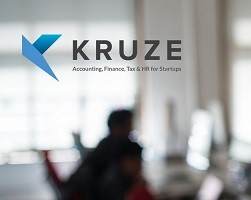Kruze Consulting, a CFO consulting company for startups, has released new data on travel, salary and rent expenses from more than 450 venture-funded startups. The data indicates the post-COVID-19 economic recovery is in full swing among startups. Travel spending on airlines, hotels and Airbnbs has reached or surpassed pre pandemic levels – with Airbnb spending up 500 percent and flights up nearly 1,000 percent since the April 2020 lows.
“We are seeing startups reopening and chasing growth again, albeit in new and interesting ways. Travel spend is surging and we’re seeing many decentralized teams gathering for week-long working sessions at Airbnbs around the country,” said Healy Jones, VP at Kruze Consulting. “Other traditional expenses like office spend haven’t followed suit though, which indicates that remote work is here to stay.”
Other expenses like rideshare are recovering, but they’re not yet back to pre-pandemic levels. In January of 2020 the average startup in the 450-plus sample was spending an average of $450 a month on rideshare. For Uber, that number recovered to pre-pandemic levels this summer, indicating that more employees are travelling to and from offices, meetings, etc.
Additionally, startups are growing increasingly remote with only 60 percent of startups paying for rent – down from 86 percent in Q4 2019. The average quarterly cost of rent has declined from $32,000 in Q4 2019 to $21,000 in Q2 or 2020, indicating that even startups that maintain office space are not increasing their footprint.
The pandemic has shifted the ways that startups conduct business. While some line items will certainly recover, it’s clear the shift to remote work is here to stay and startups are grappling with how to best leverage their spending to accommodate the new, remote workforce. While we do expect a slow grind back towards normalization in these trends, the amount startups are spending on Airbnb and travel, while simultaneously reducing rent expenses, indicates a significant shift in the way startups are deciding to operate.









